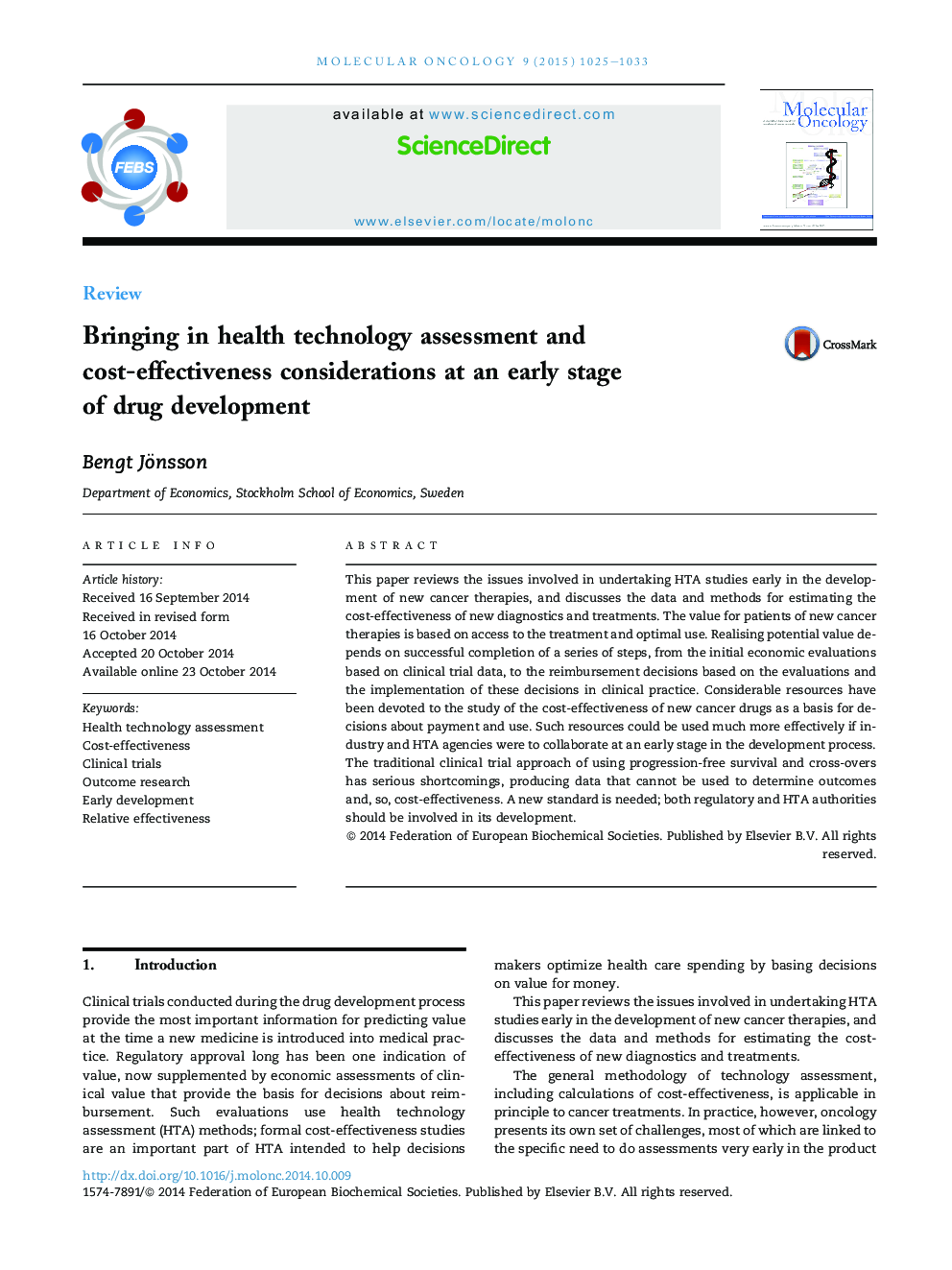| Article ID | Journal | Published Year | Pages | File Type |
|---|---|---|---|---|
| 10914735 | Molecular Oncology | 2015 | 9 Pages |
Abstract
This paper reviews the issues involved in undertaking HTA studies early in the development of new cancer therapies, and discusses the data and methods for estimating the cost-effectiveness of new diagnostics and treatments. The value for patients of new cancer therapies is based on access to the treatment and optimal use. Realising potential value depends on successful completion of a series of steps, from the initial economic evaluations based on clinical trial data, to the reimbursement decisions based on the evaluations and the implementation of these decisions in clinical practice. Considerable resources have been devoted to the study of the cost-effectiveness of new cancer drugs as a basis for decisions about payment and use. Such resources could be used much more effectively if industry and HTA agencies were to collaborate at an early stage in the development process. The traditional clinical trial approach of using progression-free survival and cross-overs has serious shortcomings, producing data that cannot be used to determine outcomes and, so, cost-effectiveness. A new standard is needed; both regulatory and HTA authorities should be involved in its development.
Keywords
Related Topics
Life Sciences
Biochemistry, Genetics and Molecular Biology
Cancer Research
Authors
Bengt Jönsson,
